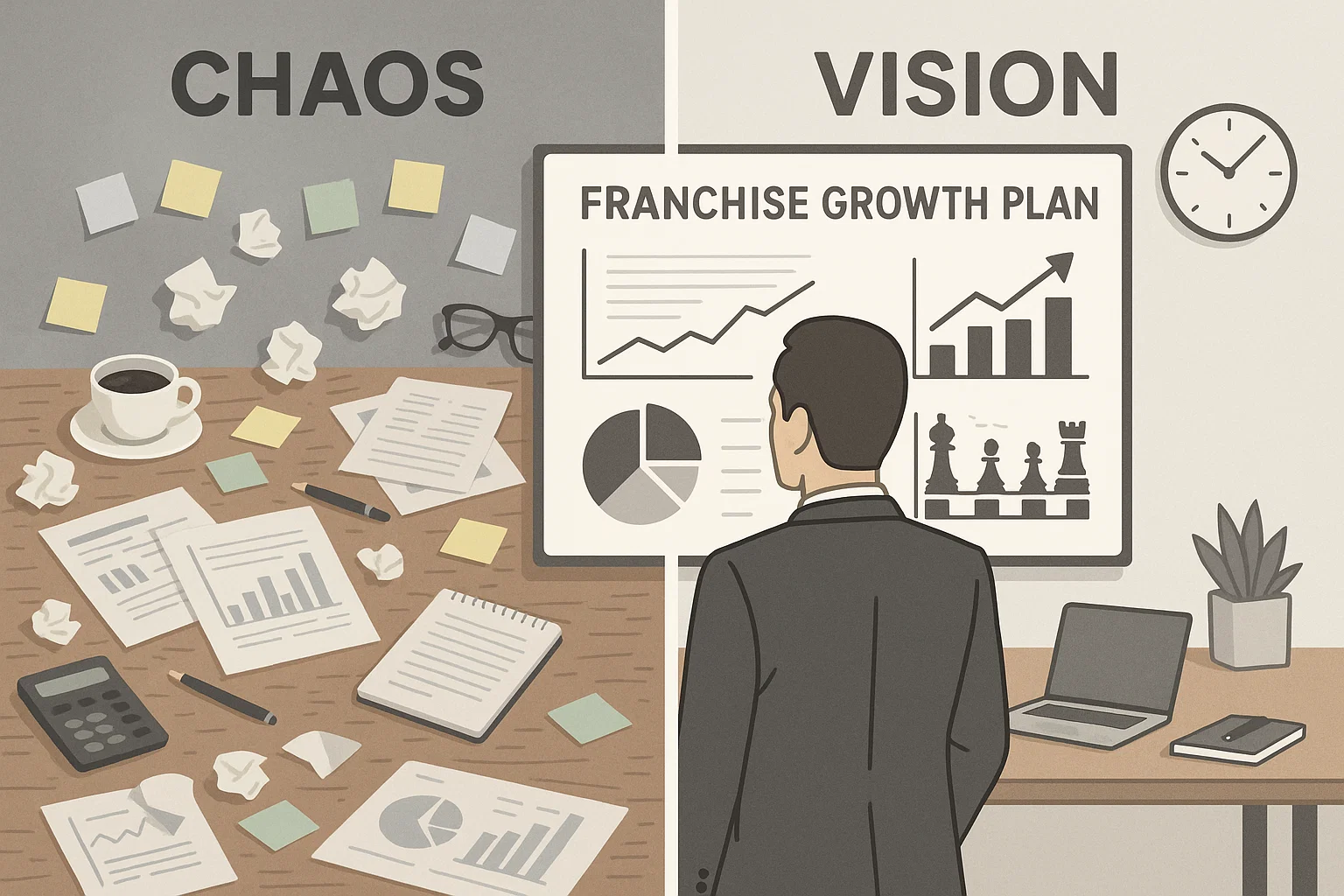Photo By Antoni Shkraba Studio
The service franchise sector in the United States is booming, with businesses in painting, plumbing, electrical, roofing, and garage upgrades leading the way. These opportunities offer lower entry costs, faster ramp-up, and simpler operations compared to traditional restaurant or retail ventures. Backed by strong consumer demand and resilience in the face of recession, service franchises are proving to be one of the most accessible and profitable ways for first-time entrepreneurs to enter business ownership.
U.S. MARKET FOR SERVICE BUSINESS FRANCHISES. WHY SERVICE FRANCHISES MAY BE THE IDEAL FRANCHISE FOR YOU.
By Gary Occhiogrosso, Founder & Managing Partner, FranGrow
As the business landscape evolves into a realm where speed, flexibility, and reliability reign supreme, service business franchises in sectors such as painting, plumbing, electrical, roof repair, and garage upgrades emerge as powerful and accessible paths to entrepreneurship. They offer aspiring business owners an opportunity to break into enterprise ownership with practical costs, straightforward operations, and a rapid ramp-up to revenue generation. In this deep dive, we explore the current U.S. market dynamics for these service franchises, underscore their advantages over brick-and-mortar retail or restaurant ventures, feature the dynamic ResiBrands family headquartered in Austin, Texas, and conclude with twenty top Google search keywords that resonate with this opportunity
A Growing and Resilient Home Services Franchise Market
The home services franchise sector is experiencing impressive growth and resilience. As of 2024, the home services franchise segment in the United States comprises more than 523 active brands, with half servicing home maintenance needs, such as plumbing, cleaning, and electrical repair. Meanwhile, roughly 36 percent focus on home improvement and remodeling work, including painting, carpentry, and exterior upgrades. The total market size in 2024 is estimated to be over USD 225 billion, with projections reaching nearly USD 396 billion by 2032, at a compound annual growth rate of approximately 6.8 percent. On a global scale, the home improvement franchise market is valued at USD 45 billion in 2024, with projections to reach USD 79 billion by 2033, driven by services such as plumbing, electrical, HVAC, and roofing.
This trajectory is fueled by recession resilience, continued urbanization, aging housing stock, and recurring demand for maintenance, repair, and improvement services. Furthermore, consolidated platform companies and investor interest are strengthening infrastructure and broadening cross-selling capabilities in this fragmented industry.
Why Service Business Franchises Outshine Traditional Retail or Restaurant Franchises
Lower Cost of Entry
Service business franchises typically require significantly less upfront capital compared to launching a brick-and-mortar retail or restaurant. For example, plumbing franchises often entail franchise fees in the range of USD 20,000 to USD 50,000, with total startup investment, including equipment, training, and marketing, ranging between USD 100,000 and USD 200,000. Another plumbing brand estimates startup costs between USD 90,000 and USD 200,000 or a conversion cost under USD 130,000.
By contrast, restaurant franchises commonly demand millions in build-out costs. Service franchises often leverage a mobile service model, eliminating the need for costly real estate and physical storefronts. Starting up with a van, tools, and training is a far more attainable and less capital-intensive model.
Simplicity of Operation and Rapid Ramp Up
Service business franchises operate with a leaner structure. They focus on delivering expertise rather than managing complex inventories or seating logistics. Training is targeted and efficient, enabling faster ramp-up to operations. Systems such as CRM, scheduling, marketing platforms, and brand support create a smooth path from launch to earning revenue.
Recurring maintenance and repair services generate reliable revenue streams. Consumers often require repeat service, modernization, or upgrades, thereby enhancing their lifetime value.
Case in Point: ResiBrands, A Portfolio of Service Franchises in Austin, Texas
Headquartered in Austin, Texas, ResiBrands is a rapidly expanding franchise parent that nurtures multiple high-growth service brands, including That 1 Painter, Garage Up, Pink’s Window Services, Action Exteriors, and Monty’s Handyman Services. The story begins with Steven Montgomery launching That 1 Painter in 2011, working with minimal funds and growing into the fastest expanding painting franchise in the nation by 2021. That creative momentum led to the formation of ResiBrands in 2022 and its subsequent expansion into garage renovation and window cleaning.
ResiBrands franchises enjoy a suite of modern tools. ResiConnect for operations such as scheduling, lead management, CRM integration, and AI-powered tools. ResiDigital for paid media campaigns and lead generation. ResiCreative for branding content, SEO, social imagery, and creative marketing. Franchisees benefit from coaching support, technology infrastructure, marketing engines, and brand development that draw on real entrepreneurial experience.
Unique strengths of ResiBrands include:
- An “entrepreneur first” culture where support and empowerment are central
- Technology integration that modernizes operations, customer acquisition and performance tracking
- Diverse service offerings under one umbrella that permit cross-selling and expansion across painting roofs, windows, garages, electrical, or general handyman services
- Strong training, marketing, and brand reputation with positive franchisee testimonials
For individuals exploring their first business venture, service franchises under ResiBrands offer a straightforward entry point, combined with substantial institutional support and scalability.
Ideal Opportunity for First-Time Entrepreneurs
If you are seeking your first business venture, service franchises provide a compelling path:
- Manageable initial costs relative to restaurants or retail establishments
- Operational simplicity with proven systems, scheduled jobs, and repeat customers
- Accelerated launch and scale supported by strong franchisor infrastructure
- Potential for cross-service expansion, especially under multi-brand platforms like ResiBrands
- A sector with resilient demand as homeowner needs persist despite economic cycles
- Strong success rates relative to independent startups, with research suggesting franchise one-year survival outperforms independent businesses by more than six percentage points
- Opportunity for multi-brand or multi-unit ownership to amplify returns and operational efficiency
Forward Looking Outlook
As the housing stock continues to age and consumers prioritize professional services over DIY time and energy demands, the home services franchise market is poised to remain strong. Millennials and members of Generation Z are increasingly outsourcing home care tasks, prioritizing reliability and convenience. Digital tools, subscription models, energy efficiency offerings, and expansion into underserved markets widen opportunity.
Entrepreneurs who choose service business franchises today lay the foundation for scalable, resilient, and adaptive enterprises.
Copyright Gary Occhiogrosso. All rights reserved worldwide.
Sources and Further Reading
LEARN MORE HERE
This article was researched, outlined and edited with the support of A.I.










